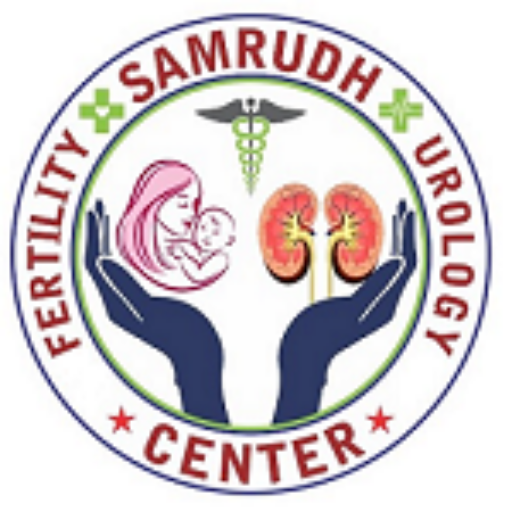When it comes to in-vitro fertilization (IVF), the quality of a woman’s eggs is a critical factor influencing the chances of a successful pregnancy. While the quantity of eggs is often emphasized, the quality is equally essential for conception, implantation, and the development of healthy embryos. Understanding how to assess and improve egg quality before undergoing IVF can significantly impact your fertility journey.
What Is Egg Quality?
Egg quality refers to the health and viability of a woman’s eggs, specifically their ability to be fertilized and develop into healthy embryos. High-quality eggs possess the appropriate chromosomal structure required for successful fertilization. In contrast, poor-quality eggs may have chromosomal abnormalities, which can lead to miscarriage or failed implantation.
As women age, egg quality naturally declines, making it a more significant concern for those over 35. However, factors beyond age—such as lifestyle, environmental influences, and genetic predispositions—can also affect egg quality.
How Is Egg Quality Assessed?
While there isn’t a single test that directly measures egg quality, fertility specialists use various methods to evaluate the likelihood of having healthy eggs. Here are some key assessment methods:
- Ovarian Reserve Testing
Ovarian reserve testing measures the number of eggs remaining in a woman’s ovaries. Although this test does not directly indicate egg quality, it provides insights into how a woman might respond to fertility treatments. Common tests include measuring Anti-Müllerian Hormone (AMH) levels and Follicle Stimulating Hormone (FSH) levels through blood tests. - Antral Follicle Count (AFC)
An ultrasound is used to count the number of antral follicles in the ovaries. This count helps estimate how many eggs might be available during a menstrual cycle, although it doesn’t necessarily reflect the quality of those eggs. - Age Factor
Age is one of the most reliable indicators of egg quality. Women in their 20s and early 30s generally have better-quality eggs compared to those in their late 30s or 40s. As a woman ages, the number of chromosomally normal eggs declines. - Observation During IVF Cycle
During an IVF cycle, specialists observe the appearance and development of the eggs in the laboratory. Eggs that mature properly and develop into healthy embryos can indicate good egg quality, but not all eggs retrieved will reach this stage, which is why collecting more eggs can enhance the chances of success.
How to Improve Egg Quality Before IVF
While some factors affecting egg quality, such as age, cannot be changed, specific lifestyle modifications and treatments can help improve egg health and optimize chances of successful IVF:
- Healthy Diet and Supplements
A balanced diet rich in antioxidants, vitamins, and minerals can enhance egg quality. Foods high in omega-3 fatty acids (like fatty fish and walnuts), leafy greens, and fruits support reproductive health. Supplements such as Coenzyme Q10 (CoQ10), DHEA, and Folic Acid are commonly recommended to improve egg health. - Manage Stress
Chronic stress can adversely affect fertility and hormone balance. Incorporating stress-reducing practices like meditation, yoga, or regular exercise can help improve overall reproductive health. - Quit Smoking and Limit Alcohol
Smoking and excessive alcohol consumption are linked to poorer egg quality. If you’re preparing for IVF, quitting smoking and reducing alcohol intake can significantly improve your chances of success. - Maintain a Healthy Weight
Being underweight or overweight can disrupt hormone balance and ovulation, negatively affecting egg quality. Achieving and maintaining a healthy weight through regular exercise and a balanced diet is essential for fertility health. - Consider Fertility Supplements
Some fertility specialists recommend specific supplements that have been shown to improve egg quality. It’s crucial to consult with your doctor at Samrudh Fertility & Urology Center before starting any new supplement regimen, as they can provide tailored recommendations based on your individual needs.
Conclusion
At Samrudh Fertility & Urology Center, we understand the complexities of IVF and the importance of egg quality in achieving a successful pregnancy. Under the guidance of Dr. Indu Madhusudan, our dedicated team works closely with each patient to optimize their fertility health and guide them through every step of their IVF journey.
FAQs
- Can egg quality be improved after a certain age?
While egg quality naturally declines with age, lifestyle changes, fertility supplements, and stress management can still have a positive impact. Though egg quality cannot be fully restored, improving overall health may enhance IVF outcomes, even for women over 35. - How can I assess if my egg quality is good?
There is no direct test for egg quality, but a fertility specialist can assess your ovarian reserve, age, and response to IVF treatments to gauge your chances of success. Monitoring during IVF can provide more information about egg health. - Is it possible to have a high ovarian reserve but poor egg quality?
Yes, it’s possible to have a high number of eggs but still experience poor egg quality. This is why both quantity and quality are important considerations during fertility treatments. - Can diet and lifestyle affect egg quality?
Absolutely. A nutrient-rich diet, regular exercise, stress management, and avoiding harmful habits like smoking and excessive alcohol consumption can support egg health and overall fertility. Supplements such as CoQ10 and antioxidants may also help improve egg quality. - When should I start making lifestyle changes before IVF?
It’s recommended to start improving lifestyle factors at least three to six months before beginning IVF treatment. This allows time for changes to positively impact egg quality and optimize your chances for a successful pregnancy.













